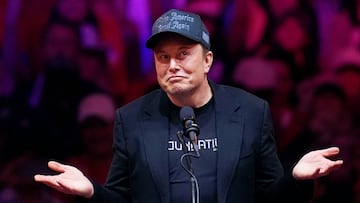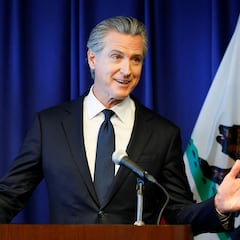Elon Musk has had a lightbulb moment and plans to turn his great creations into a data center: “They are too intelligent”
The Tesla CEO wants to link all his cars into a massive AI network, turning idle vehicles into a rolling supercomputer.

During Tesla’s third-quarter 2025 earnings call, Elon Musk did what he does best: drop ideas that sound like they came straight out of a science fiction novel. Amid promises to produce millions of robotaxis and sell three million vehicles annually, Musk floated a proposal that is intriguing but still mostly theoretical.
He reflected on the technological potential of Tesla vehicles, noting that, in his words, “they have too much intelligence for a car, so they can get bored.”
His solution? Connect all the cars into an artificial intelligence network. In other words, Musk wants to turn every Tesla into a processing unit that, when linked together, forms a massive data center on wheels.
Elon Musk's involvement in politics has really hurt Tesla sales.
— John B. Holbein (@JohnHolbein1) October 27, 2025
"Without the Musk partisan effect, Tesla sales between October 2022 and April 2025 would have been 67-83% higher, equivalent to 1-1.26 million more vehicles." pic.twitter.com/4tX5ojCKQa
A fleet of bored cars could become a computing powerhouse
“If we connected all these bored, underused cars... we could have a giant fleet of data and resources,” Musk explained. His calculations suggest that with 100 million vehicles, each contributing roughly 1 kilowatt of processing power, the network could reach 100 gigawatts of distributed computing, with energy and cooling already accounted for.
The idea is not entirely new. Projects like SETI@Home and Folding@Home have long used idle computing power from millions of personal computers to search for extraterrestrial life or study diseases. What is novel is applying that concept to moving vehicles and using them to train artificial intelligence.
Imagination vs. reality
As is often the case with Musk, the imagination runs ahead of the facts. Tesla has sold 7.5 million cars in its entire history, far short of the 100 million needed to realize this vision. Using cars’ computing power for AI would also create technical challenges, including extra battery drain, hardware wear and tear, and the need to compensate vehicle owners.
Is it possible? Theoretically, yes. Practical? Not really. Still, Musk deserves credit for not fearing the impossible. Whether this idea remains a catchy line for investors or becomes a real project remains to be seen.
Related stories
Get your game on! Whether you’re into NFL touchdowns, NBA buzzer-beaters, world-class soccer goals, or MLB home runs, our app has it all.
Dive into live coverage, expert insights, breaking news, exclusive videos, and more – plus, stay updated on the latest in current affairs and entertainment. Download now for all-access coverage, right at your fingertips – anytime, anywhere.


Complete your personal details to comment